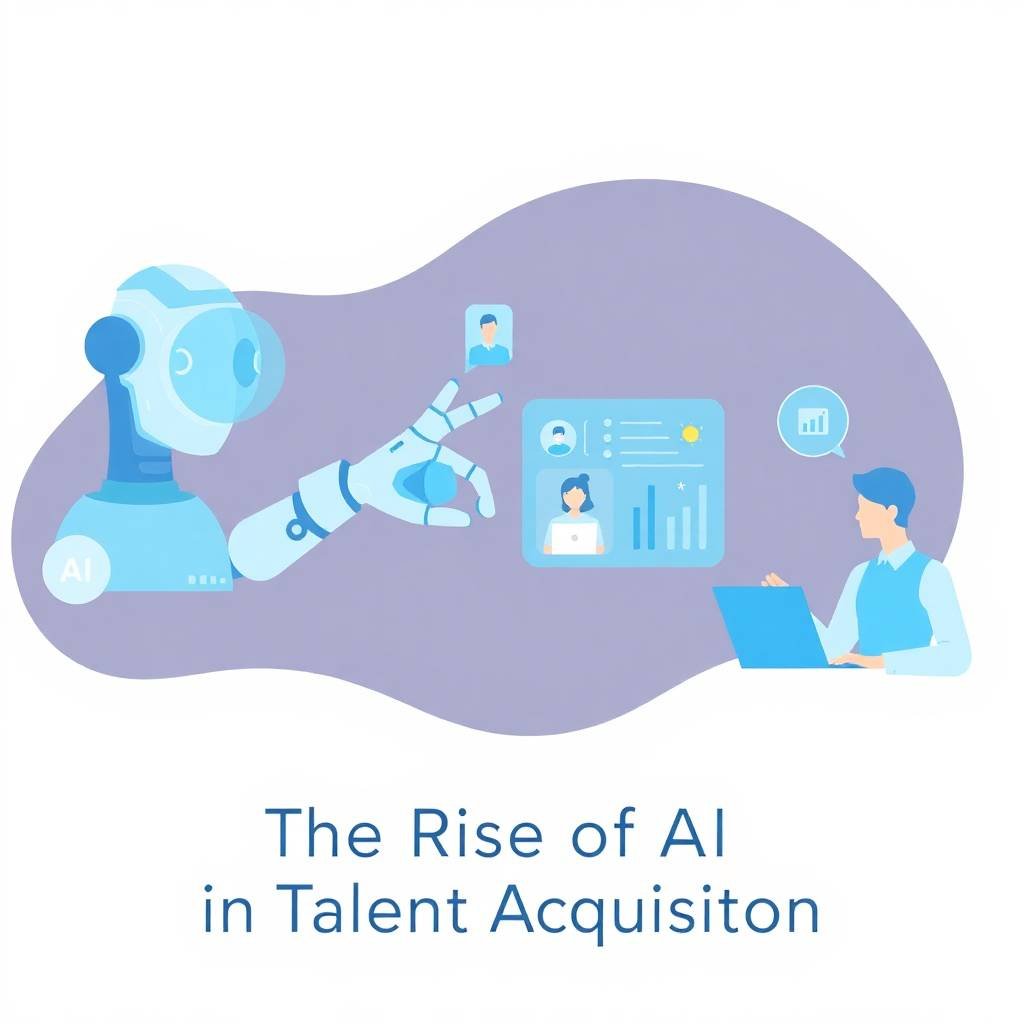Introduction
In the ever-evolving job market, companies are under constant pressure to attract, identify, and hire the best talent quickly and efficiently. Traditional recruitment methods are often time-consuming and prone to biases, leading to challenges in securing the best candidates. However, Artificial Intelligence (AI) is emerging as a game-changer in talent acquisition, offering cutting-edge solutions that streamline recruitment processes and enhance decision-making.
Current Applications of AI in Talent Acquisition
Resume Screening and Candidate Matching
AI algorithms are revolutionizing the initial stages of recruitment by automating resume screening. These tools efficiently sift through thousands of resumes, identifying top candidates based on specific criteria such as skills, experience, and qualifications. By matching candidates to job descriptions more precisely, AI helps reduce hiring biases and enhance the overall quality of the selection process.
Chatbots for Candidate Engagement
AI-powered chatbots are transforming candidate engagement by providing instant responses to inquiries and guiding applicants throughout the recruitment process. These chatbots ensure consistent communication, enhancing the candidate experience by offering 24/7 support and timely updates. As a result, candidates feel more connected and informed, improving overall satisfaction with the recruitment journey.
Benefits of AI in Talent Acquisition
Increased Efficiency
AI technologies streamline the recruitment process by automating labor-intensive tasks like resume screening and interview scheduling. This allows HR professionals to focus on strategic activities, significantly reducing time-to-hire and optimizing resource allocation.
Enhanced Decision-Making
AI provides recruiters with data-driven insights that support more informed decision-making. By analyzing patterns and trends in candidate data, AI helps identify the best candidates for specific roles, improving the quality of hires and reducing turnover rates. This data-centric approach ensures that recruitment decisions are grounded in objective analysis rather than subjective judgment.
Challenges and Considerations
Data Privacy and Bias
The integration of AI in recruitment processes raises significant concerns about data privacy and the potential for algorithmic bias. Organizations must ensure that their AI systems are designed to protect candidate information and uphold privacy standards. Additionally, it’s crucial to regularly audit AI algorithms to identify and correct any biases that may influence hiring decisions unfairly.
Human Oversight
While AI can automate many aspects of the recruitment process, human oversight remains vital. Recruiters must continue to assess cultural fit and make final hiring decisions, ensuring that AI complements rather than replaces human judgment. Balancing AI’s efficiency with the nuanced understanding of human recruiters is essential for a well-rounded talent acquisition strategy.
The Future of AI in Talent Acquisition
As AI technology continues to advance, its role in talent acquisition is set to expand significantly. Future developments may include more sophisticated predictive analytics for workforce planning, enabling organizations to anticipate talent needs and gaps more accurately. AI-driven assessments may evolve to evaluate not only skills but also soft skills and cultural fit, providing a more holistic view of candidates.
Additionally, virtual reality tools could be integrated with AI to offer immersive candidate experiences, allowing potential hires to engage with a company’s culture and work environment before making a decision. These innovations promise to further refine recruitment strategies, making them more efficient and tailored to the needs of both employers and candidates.
Conclusion
AI is revolutionizing talent acquisition by providing tools and strategies that enhance efficiency and decision-making. While challenges remain, particularly regarding data privacy and the need for human oversight, the potential benefits of AI in recruitment are significant. As technology continues to evolve, organizations that leverage AI will be better positioned to attract and retain top talent in an increasingly competitive landscape.

